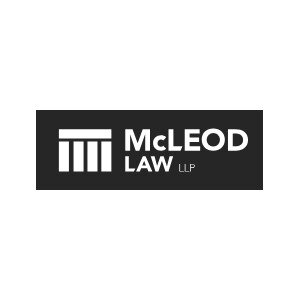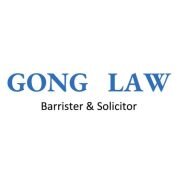Best Land Use & Zoning Lawyers in Calgary
Share your needs with us, get contacted by law firms.
Free. Takes 2 min.
Free Guide to Hiring a Real Estate Lawyer
List of the best lawyers in Calgary, Canada
About Land Use & Zoning Law in Calgary, Canada
Land use and zoning law in Calgary, Canada, governs how land is used and developed within the city. This legal framework establishes specific zoning classifications, which dictate the types of structures that can be built, the purposes they may serve, and how they contribute to the urban environment. Zoning is an essential tool for city planning, helping manage urban growth, ensure sustainable development, protect the environment, and achieve harmony within residential, commercial, and industrial areas. Calgary's zoning regulations are regulated under the Municipal Government Act and the Land Use Bylaw, which provides guidelines and rules for land use throughout the city.
Why You May Need a Lawyer
Navigating land use and zoning laws can be complex, and there are several reasons why you might need legal assistance:
- Development Projects: If you are planning to develop or redevelop a property, understanding zoning requirements and obtaining necessary permits is crucial.
- Zoning Disputes: Disputes over property boundaries, incompatible land uses, or violations of zoning regulations may require legal intervention.
- Rezoning Applications: If you seek to change the zoning classification of your property, a lawyer can help guide you through the application process.
- Property Transactions: Lawyers ensure compliance with zoning laws during property sales and purchases, avoiding potential legal issues.
- Environmental Concerns: Legal advice may be necessary when dealing with land use that could impact the environment or involves sensitive land.
Local Laws Overview
Calgary's zoning laws are outlined in the Land Use Bylaw and are influenced by the Municipal Development Plan. Key aspects include:
- Zoning Classifications: Differentiates areas for residential, commercial, industrial, and mixed-use development, each with specific guidelines.
- Development Permits: Required for most construction and renovation projects; ensures compliance with zoning and safety standards.
- Building Regulations: Codes and standards for construction quality, design, and safety, including height restrictions and setbacks.
- Environmental Standards: Guidelines to protect open spaces, water bodies, and wildlife within urban settings.
- Public Participation: Opportunities for community input on zoning changes or large developments through public hearings.
Frequently Asked Questions
What is zoning, and why is it important?
Zoning is the division of land into zones where certain land uses are permitted or prohibited. It ensures organized urban development, minimizes conflicts between land uses, and promotes sustainable growth.
How can I find out the zoning of my property in Calgary?
You can find zoning information through the City of Calgary’s website or by contacting the Planning & Development department.
What should I do if I want to build something not permitted by current zoning laws?
You may apply for a zoning variance or rezoning. This process involves a detailed application and often requires legal assistance to navigate successfully.
Can zoning laws affect my property value?
Yes, zoning can influence property value, as it determines what can be built on a property and may restrict certain types of development.
Are there any restrictions on renovations to existing buildings under Calgary zoning laws?
Renovations often require permits, and compliance with zoning regulations is crucial. Some renovations may also necessitate a change in zoning classification.
Do I need a permit for every construction project?
Most construction work, including new builds, extensions, and significant renovations, requires a development permit or a building permit, sometimes both.
What is a bylaw amendment, and when might I need one?
A bylaw amendment is a formal change to zoning laws. You may need one if current regulations restrict your intended use of a property.
How do public hearings factor into zoning changes?
Public hearings allow community members to provide input on proposed zoning changes, helping city officials make informed decisions.
What are the consequences of violating zoning laws?
Violating zoning laws can result in fines, enforcement actions, and mandatory compliance measures, which may include undoing unauthorized work.
Can I appeal a decision made by the Planning & Development department?
Yes, you can appeal certain decisions through the Subdivision and Development Appeal Board, which reviews cases independently.
Additional Resources
- City of Calgary - Planning & Development: Offers resources and guidance for zoning and development in Calgary.
- Calgary Municipal Land Corporation (CMLC): Provides insight into urban projects and community development efforts.
- Alberta Land Institute: Conducts research and provides information on land use policy in Alberta.
- Alberta Municipal Government Board: Reviews appeals on zoning disputes and other land use issues.
Next Steps
If you require legal assistance in land use and zoning matters in Calgary, consider the following steps:
- Consult a Lawyer: Seek advice from a legal professional experienced in Calgary’s zoning laws to understand your rights and options.
- Gather Documentation: Collect relevant documents, including permits, plans, and correspondence relating to your zoning issue.
- Research the Law: Familiarize yourself with Calgary's Land Use Bylaw and the Municipal Government Act to understand the legal framework.
- Prepare Your Case: Work with your lawyer to develop a strategy, whether it's applying for rezoning, responding to a dispute, or engaging in public hearings.
- Stay Informed: Keep updated with any changes in local zoning laws and participate in community discussions and hearings related to land use.
Lawzana helps you find the best lawyers and law firms in Calgary through a curated and pre-screened list of qualified legal professionals. Our platform offers rankings and detailed profiles of attorneys and law firms, allowing you to compare based on practice areas, including Land Use & Zoning, experience, and client feedback.
Each profile includes a description of the firm's areas of practice, client reviews, team members and partners, year of establishment, spoken languages, office locations, contact information, social media presence, and any published articles or resources. Most firms on our platform speak English and are experienced in both local and international legal matters.
Get a quote from top-rated law firms in Calgary, Canada — quickly, securely, and without unnecessary hassle.
Disclaimer:
The information provided on this page is for general informational purposes only and does not constitute legal advice. While we strive to ensure the accuracy and relevance of the content, legal information may change over time, and interpretations of the law can vary. You should always consult with a qualified legal professional for advice specific to your situation.
We disclaim all liability for actions taken or not taken based on the content of this page. If you believe any information is incorrect or outdated, please contact us, and we will review and update it where appropriate.













